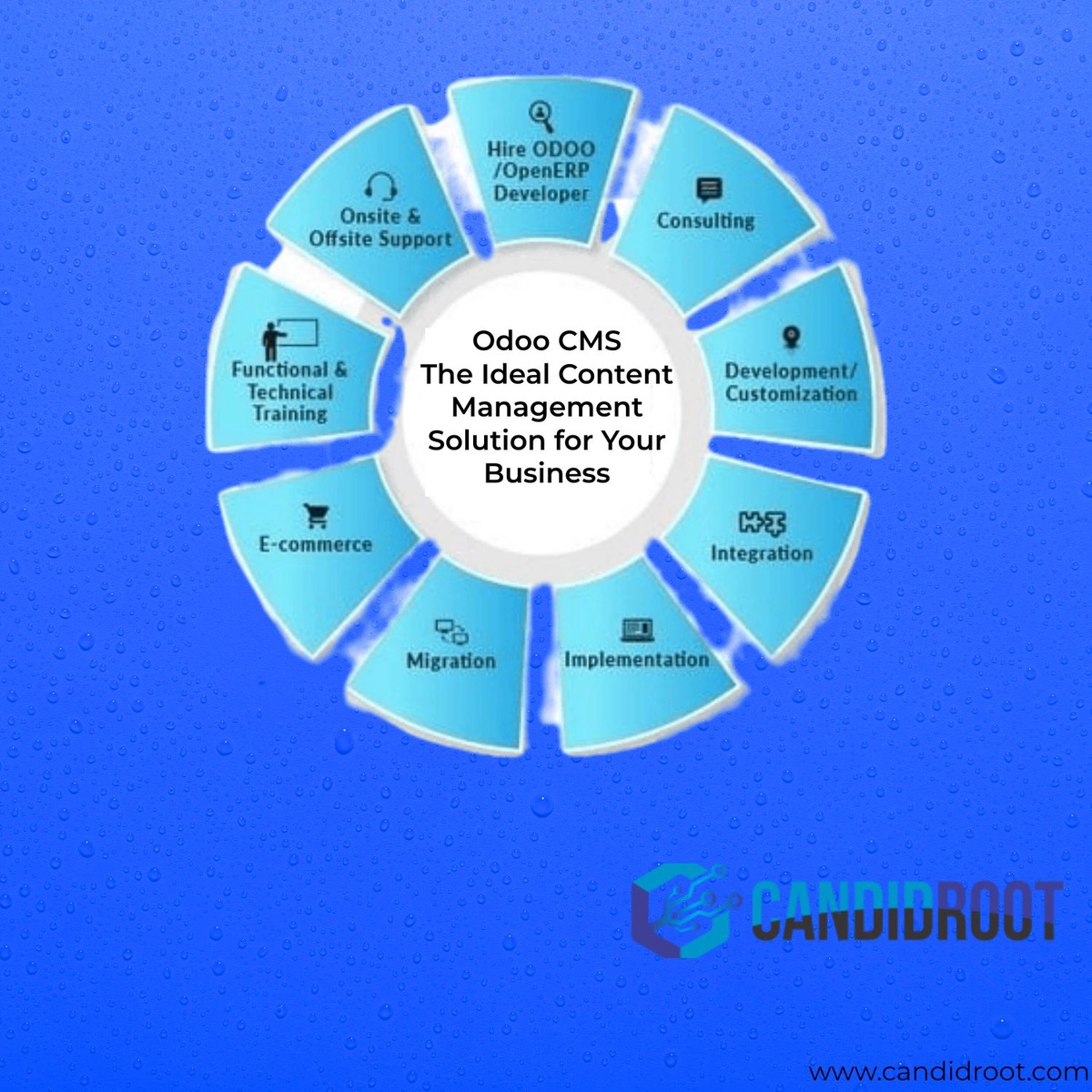Introduction
---------------------------------------
In today's competitive business landscape, efficient management of business processes is crucial for success. Enterprise Resource Planning (ERP) systems have emerged as powerful tools that integrate various aspects of a business, providing a unified platform for seamless operations. One such popular ERP solution is Odoo. In this blog post, we will explore the concept of Odoo implementation, its benefits, and how businesses can leverage Odoo development services to streamline their operations.
What is Odoo ERP Implementation?
--------------------------------------------------------
Odoo ERP implementation refers to the process of deploying and customizing the Odoo ERP system to meet the specific needs of a business. Odoo is an open-source ERP software that offers a wide range of modules and functionalities, including accounting, inventory management, CRM, human resources, manufacturing, and more. By implementing Odoo, businesses can centralize their operations, automate processes, improve collaboration, and gain valuable insights for better decision-making.
Benefits of Odoo ERP Implementation
---------------------------------------------------------
- Streamlined Operations: Odoo ERP implementationenables businesses to integrate and streamline their core operations, eliminating data silos and improving overall efficiency. It provides a centralized database, allowing real-time access to information and facilitating seamless collaboration across departments.
- Enhanced Productivity: With Odoo, businesses can automate repetitive tasks, reducing manual effort and increasing productivity. Workflows can be customized to match specific business processes, automating approvals, notifications, and reminders. This streamlines operations and enables employees to focus on value-added tasks.
- Improved Decision-making: Odoo ERP implementation provides businesses with comprehensive reporting and analytics capabilities. Real-time data and insights enable better decision-making, allowing businesses to identify trends, optimize processes, and identify areas for improvement.
- Scalability and Flexibility: Odoo is highly scalable, allowing businesses to adapt and grow without significant disruptions. New modules and functionalities can be easily added as the business expands, ensuring that the ERP system can cater to evolving needs.
Odoo ERP Implementation Process
-----------------------------------------------------
The process of Odoo ERP implementation typically involves the following steps:
- Requirement Gathering: The first step is to understand the specific needs and requirements of the business. This involves identifying pain points, areas for improvement, and desired functionalities. A thorough analysis helps in defining the scope and objectives of the implementation.
- System Configuration and Customization: Based on the requirements gathered, the Odoo ERP system is configured and customized to align with the business processes. This includes setting up modules, defining workflows, customizing forms and reports, and integrating with existing systems if required.
- Data Migration: The next step is to migrate existing data from legacy systems to Odoo. This ensures a seamless transition and allows businesses to leverage historical data for analysis and reporting.
- User Training: User training is essential to ensure that employees can effectively use the Odoo ERP system. Training sessions should cover basic navigation, module-specific functionalities, and best practices. User feedback and continuous support play a crucial role in user adoption.
- Testing and Quality Assurance: Before going live, thorough testing and quality assurance are conducted to identify and resolve any issues or bugs. This includes testing different scenarios, ensuring data integrity, and verifying system performance.
- Go-live and Post-Implementation Support: Once the system is tested and approved, it is deployed for live operations. Post-implementation support is provided to address any immediate concerns and assist users in becoming comfortable with the new system.
Leveraging Odoo Development Services
----------------------------------------------------------
To ensure a successful Odoo ERP implementation, businesses can benefit from partnering with Odoo development service providers
. These providers offer expertise in Odoo customization, integration, and support, enabling businesses to optimize their implementation process. By working with experienced Odoo developers, businesses can leverage their knowledge and skills to tailor the ERP system to their specific needs, ensuring a seamless integration into their existing infrastructure.
Conclusion
---------------------------------
Odoo ERP implementation empowers businesses to streamline their operations, enhance productivity, and make informed decisions. By embracing Odoo development services, businesses can customize the ERP system to align with their unique requirements. The process involves thorough planning, configuration, customization, data migration, user training, and post-implementation support. With its scalability and flexibility, Odoo offers a robust solution for businesses of all sizes and industries. By implementing Odoo ERP effectively, businesses can optimize their processes, drive growth, and gain a competitive edge in the market.


No comments yet